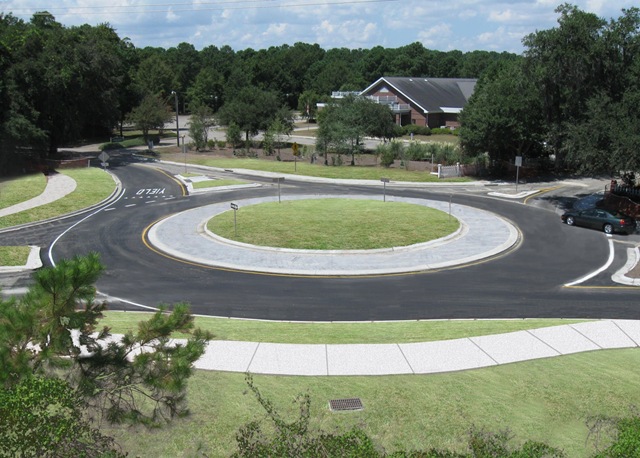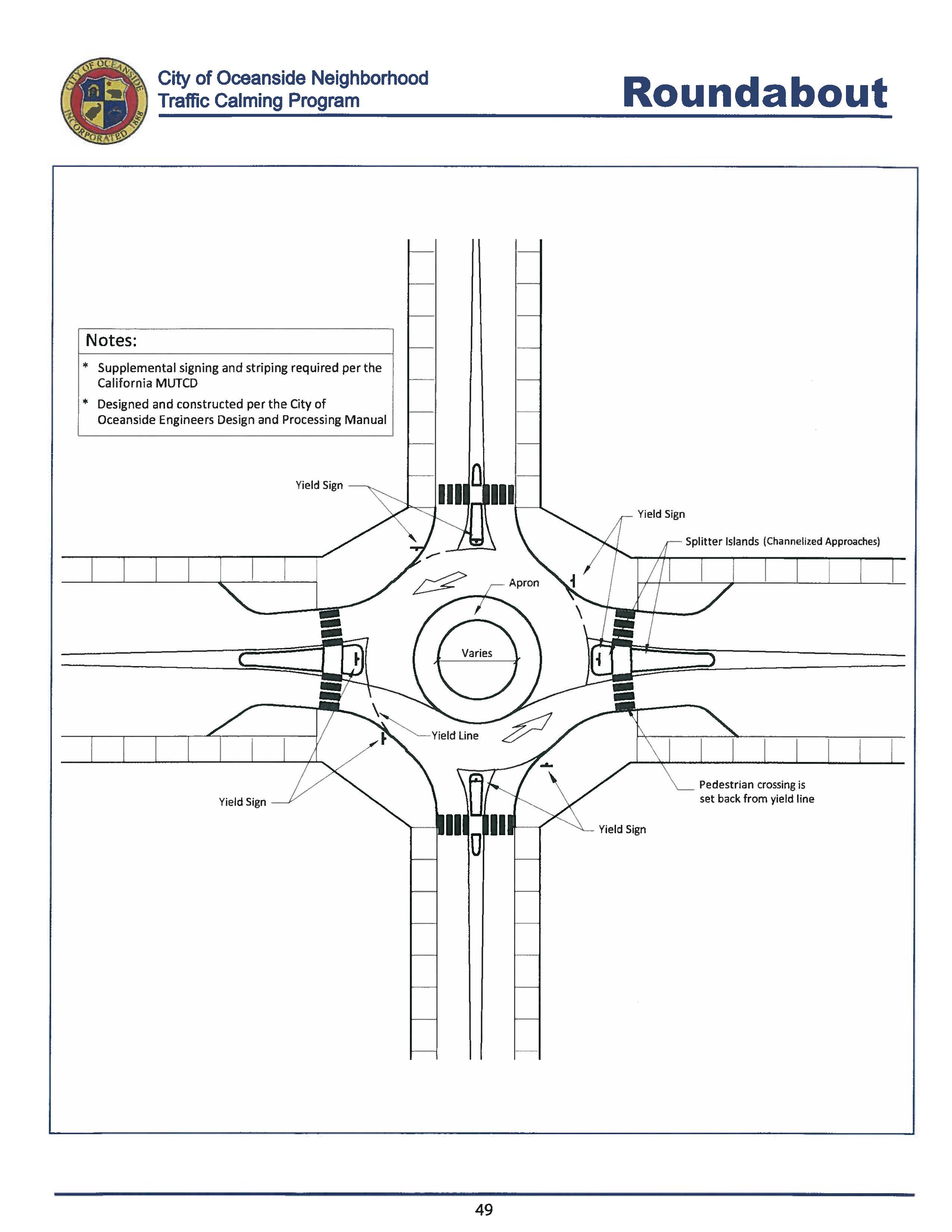Device name(s): Roundabouts
Approximate Cost:$250,000 – $500,000
Definition: Roundabouts are large raised circular islands placed in the middle of an intersection with channelized approaches. The purpose of roundabouts is to slow motorist speeds as they maneuver around the circle to proceed through the intersection. Motorists entering the intersection must yield to circulating traffic. The dimensions of the roundabout can vary depending on the volume and types of vehicle usage.
Fast Facts:
- Can be used on Local Street- yes
- Can be used on Collector- yes
- Can be used on Arterial- yes
- Reduces Speed- yes
- Reduces Volume- no
- Noise Impact- no
- Restricts Access- no
- Bicyclist Impact- possible
- Transit Impact- possible
- Parking Impact- yes
- Emergency Response Impact- no
Advantages:
- reduces speed through the an intersection
- increases intersection capacity
- reduces vehicle delay and queues
- improves access
- can have positive aesthetic value
- can come two street at once
- designed to accommodate wider range of vehicles
Disadvantages:
- increases regular maintenance
- may require loss of parking
- may require additional right-of-way
- can increase emergency response times
- additional right-of-way will likely be needed
- landscaping must be maintained
- expensive to install
Criteria/Application(s):
- calming intersections, especially with the neighborhoods were large vehicles, speed, volumes and safety are problems

